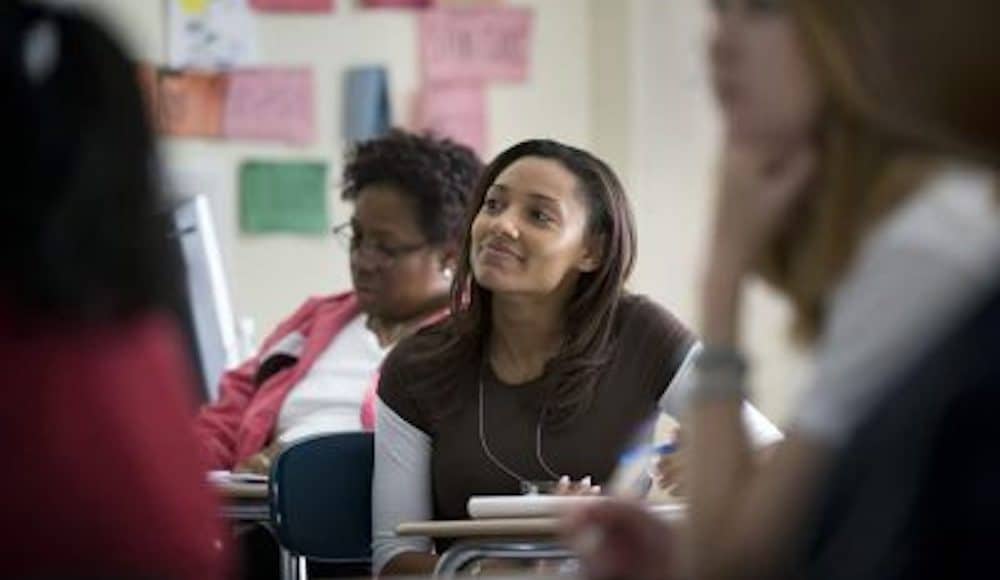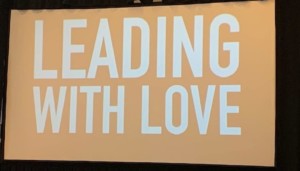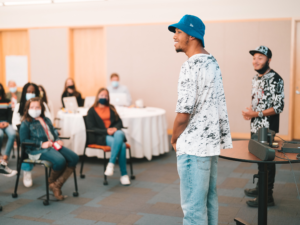Voices from the Field: Educational Leadership

By: Erin Gohl and Kristen Thorson
We recently asked a group of educators which qualities in leadership facilitate educator growth and empowerment in support of student learning. Many of the responses are not that surprising. Words like supportive, present, trustworthy, respectful, empathetic, understanding, realistic, solution-oriented, and flexible consistently showed up across responses. These leadership qualities transcend most professions and are necessary for productive leadership.
Being a great educational leader, however, in many ways requires an additional unique set of qualities and skills. Educational leaders’ work is exceptionally complicated given that it revolves around the productive growth and development of children, from a variety of backgrounds, with a diverse set of needs, all of which are constantly evolving. The mission of their work regularly changes at the whims of the district, state, or federal legislators, bureaucrats, researchers, and pundits, and maintaining consistency despite shifting variables and goals is especially challenging. And the stakes for their success or failure are considerably high as individual trajectories and a community’s collective well-being depend on their vision and their ability to carry it out. It is the specifics of how these educators describe manifesting the general qualities that make their insights so important for educators at-large.
As our educators delved deeper into their reflections and experiences, the import of the particular characteristics to productively lead within this demanding and, at times, perplexing, context became apparent. A synthesis of qualities including the capability to take a systems approach to assess challenges and developing a plan forward; to be able to inspire a movement for long-term growth; to a need for bravery and courage to tackle hard decisions emerged as fundamental for an exceptional educational leader.
Shared Vision
Over and over again, this group of educators described the need for leaders to clearly articulate a vision for a school or district and an effort to bring stakeholders in as partners in realizing that vision. First and foremost, an effective educational leader must truly get to know their community–its specific history, needs, challenges, opportunities, and aspirations that make it unique–in order to develop a plan that speaks to where a community wants and needs to go and the most productive ways to get there. This vision cannot be generic. In short, a good leader must know the unique needs of their district or school in order to be successful.
Beyond understanding the dynamics of a particular community, many respondents spoke of the need for a leader to share that vision with others, in both word and practice. Donna Kouri, Library Media Center Director at Longwood Elementary, Indian Prairie School District (IL) explained that a great educational leader is, “someone who has a vision and is able to share that vision with others and work collaboratively. They need to know when to push people to move forward but also when to sit back and let what is already working continue to work without interference.” Stacey Skoning, Chair, Department of Special & Early Childhood Education, University of Wisconsin Oshkosh took this further to note that, “They also must be able to model what they expect from others on their team.”
Many respondents also noted that it is important to celebrate a community’s diversity and be inclusive of varying perspectives in order for the community to share the ownership of that vision. Skoning noted that a good educational leader, “listens to all constituents, brings people with diverse opinions and perspectives together, and helps the group move forward with a high level of buy-in from all of the constituents.”
A common theme on all the topics we surveyed was that students should be at the center. This was particularly noteworthy when describing productive educational leadership and vision. As Kouri put it succinctly: “[Educational leaders] must always put students first.” An educational leader’s vision should be guiding all work within a community. Therefore, if the overarching blueprint for a district is constructed around what is best for student learning and growth, a student-centered approach to decision-making remains at the core. This is especially important, too, when changes arise from personnel turnover, new federal or state legislation, or acute circumstances, as a student-centered vision should transcend any of these disruptions.
Bravery and Courage
Though thinking aspirationally and positively is good for a community, many respondents noted how fundamental it is for a leader to have and encourage hard, difficult conversations. And, at times, they give voice to the silenced people and perspectives by addressing challenging truths. This bravery of voice provides a necessary contribution for any educational community to grow and productively move forward. The willingness to shine a spotlight on underlying tensions, historical inequities, and contemporary concerns is essential for the health of a community as these issues often impede real lasting progress. Daryl Diamond, Director of Innovative Learning, Broward County (FL) Public Schools described that we must be willing to engage in “continued courageous conversations about present conditions and changes in processes that must be done in order to obtain desired goals.” Skoning reflected on her experience:
We have to be able to move past having a polite conversation and move to being able to engage in more challenging discourse. I once had a principal who used to push us to ‘lean into discomfort’ and talk about things that were difficult for us to talk about with our peers. This level of conversation does not happen as the result of a one-time professional development opportunity. It must be cultivated over time and be part of the fabric of the educational institution. Only then can we come to meaningful conclusions that will result in important outcomes for staff and students alike.
Building upon the creation of this culture of candor coupled with productive problem-solving and supportive, team-based approach, many educators noted the need for educational leaders to be willing to challenge the status quo in order to facilitate professional and student growth and development. This is especially true if a community has hit a point of stagnation. Additionally, rapid changes in technology, the global economy, and our understanding of human development means the purpose and structure of schooling is evolving, therefore requiring shifts in teaching and learning.
But, change at both the organizational and individual level can be hard and uncomfortable and, therefore, requires courage to make and lead changes as an organizational head. Tracey Ratner, Principal, Longwood Elementary, Indian Prairie Public Schools expanded on this, “An educational leader must have the ability to think creatively and outside the box. Most importantly, an educational leader must be in tune with the needs of the students and staff, and be able to help others challenge the status quo.” Creating a culture where professionals feel comfortable taking risks in order to refine a practice or create new pathways for learning allows for this kind of change to be both organic and iterative. As Diamond described, we must provide, “safety nets for those individuals who are willing to take risks to make the change they want to see.”
Part of this willingness to change policy and practice must be a reflective cycle in order to ensure that such changes are effective and productive. Respondents noted that educational leaders must partner such reflection with an openness to adapt when something is not working. Diamond shared that, “In today’s educational environment, leaders need to be extremely aware of what is working and what is not, and then flexible enough to make the corrective changes based on that knowledge.” And these changes must be measured by holistic student growth and development in line with the overall vision.
The Best Leaders Are Learners, Too
All too often, we expect our educational leaders to be the all-knowing problem solver in a building or district. They are assumed to have the answer to every question; they are expected to have an immediate plan in a crisis, and school communities rarely give them room to admit the unknown when confronted with a challenge. A theme that emerged from our respondents, however, is that leaders must be learners, too. They must see themselves as such, and their communities must embrace their leader as someone who is still striving for growth and improvement. And like all learners, each leader’s learning community needs to provide encouragement, that includes both the expectation to strive for improvement, support when efforts fall short and acknowledgment along the way.
Dr. Nicole Mancini, Director, Elementary Learning, Broward County Public Schools explained, “A successful educational leader creates an environment where all stakeholders have opportunities to grow and learn from experiences and interactions within the system.” Just as we must plan for student learning, we must also work to support the professional development of all leaders, teachers, and assistants. When leaders embrace continuous learning, they can shape a school community’s vision to support students, have the tools and character to prioritize the collective good over the easy path, all of which work to elevate the community of learning.
For more, see:
This piece is part two of a three-part series on educational perspectives from a variety of stakeholders in the educational ecosystem. We surveyed a wide array of educators, from classroom practitioners to school and district level administrators, to academic professors and researchers. These educators serve students spanning from early childhood to secondary grades and represent a broad swath of specialties. In this piece, we compiled and analyzed their responses pertaining to productive and exemplary educational leadership.
Stay in-the-know with innovations in learning by signing up for the weekly Smart Update.





Soni
I really appreciate the work you have done, you explained everything in such an amazing and simple way.